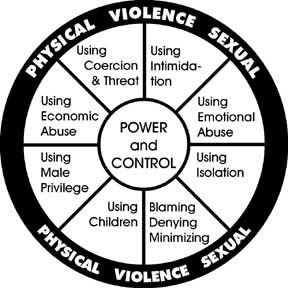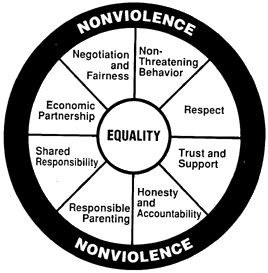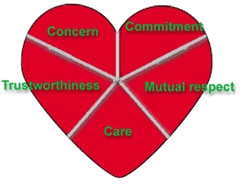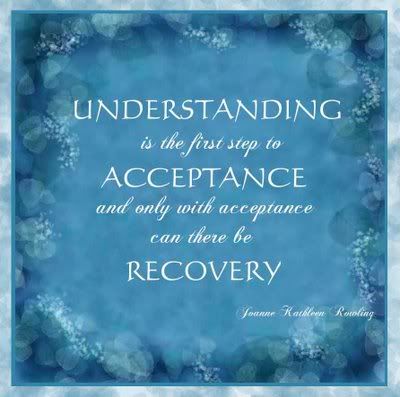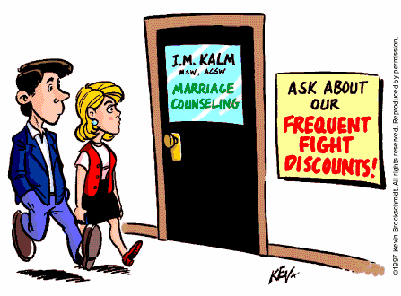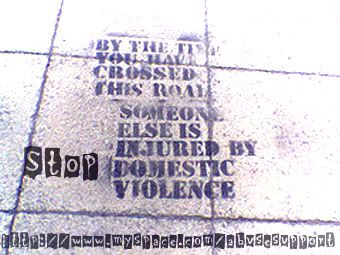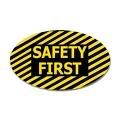
An abused woman attempts to leave her abuser an average of SEVEN TIMES before finally leaving for good. I attempted to leave several times... can't remember how many... but I ended up going back every time (except the last obviously) because I was unprepared. I didn't have necessities. When I finally DID get out, it was after literally MONTHS of plotting and planning and getting organized for the escape. There are times, though, when one simply cannot wait to escape. It pays to be prepared for the possibility that you may NEED to flee at the spur of the moment. Following is a very informative article on safety planning that I copied from the American Bar Association's webpage. It's very thorough.
DOMESTIC VIOLENCE
Safety Tips For You And Your Family
IF YOU ARE IN DANGER, CALL 911 or your local police emergency number
To find out about help in your area, call:
National Domestic Violence Hotline:
1-800-799-SAFE
1-800-787-3224 (TTY)
Whether or not you feel able to leave an abuser,there are things you can do to make yourself and your family safer.
IN AN EMERGENCY
If you are at home & you are being threatened or attacked:
~ Stay away from the kitchen (the abuser can find weapons, like knives, there)
~ Stay away from bathrooms, closets or small spaces where the abuser can trap you
~ Get to a room with a door or window to escape
~ Get to a room with a phone to call for help; lock the abuser outside if you can
~ Call 911 (or your local emergency number) right away for help; get the dispatcher's name
~ Think about a neighbor or friend you can run to for help
~ If a police officer comes, tell him/her what happened; get his/her name & badge number
~ Get medical help if you are hurt
~ Take pictures of bruises or injuries
~ Call a domestic violence program or shelter (some are listed here); ask them to help you make a safety plan
HOW TO PROTECT YOURSELF AT HOME
~ Learn where to get help; memorize emergency phone numbers
~ Keep a phone in a room you can lock from the inside; if you can, get a cellular phone that you keep with you at all times
~ If the abuser has moved out, change the locks on your door; get locks on the windows
~ Plan an escape route out of your home; teach it to your children
~ Think about where you would go if you need to escape
~ Ask your neighbors to call the police if they see the abuser at your house; make a signal for them to call the police, for example, if the phone rings twice, a shade is pulled down or a light is on
~ Pack a bag with important things you'd need if you had to leave quickly; put it in a safe place, or give it to a friend or relative you trust
~ Include cash, car keys & important information such as: court papers, passport or birth certificates, medical records & medicines, immigration papers
~ Get an unlisted phone number
~ Block caller ID
~ Use an answering machine; screen the calls
~ Take a good self-defense course
HOW TO MAKE YOUR CHILDREN SAFER
~ Teach them not to get in the middle of a fight, even if they want to help
~ Teach them how to get to safety, to call 911, to give your address & phone number to the police
~ Teach them who to call for help
~ Tell them to stay out of the kitchen
~ Give the principal at school or the daycare center a copy of your court order; tell them not to release your children to anyone without talking to you first; use a password so they can be sure it is you on the phone; give them a photo of the abuser
~ Make sure the children know who to tell at school if they see the abuser
~ Make sure that the school knows not to give your address or phone number to ANYONE
HOW TO PROTECT YOURSELF OUTSIDE THE HOME
~ Change your regular travel habits
~ Try to get rides with different people
~ Shop and bank in a different place
~ Cancel any bank accounts or credit cards you shared; open new accounts at a different bank
~ Keep your court order and emergency numbers with you at all times
~ Keep a cell phone & program it to 911 (or other emergency number)
HOW TO MAKE YOURSELF SAFER AT WORK
~ Keep a copy of your court order at work
~ Give a picture of the abuser to security and friends at work
~ Tell your supervisors - see if they can make it harder for the abuser to find you
~ Don't go to lunch alone
~ Ask a security guard to walk you to your car or to the bus
~ If the abuser calls you at work, save voice mail and save e-mail
~ Your employer may be able to help you find community resources
USING THE LAW TO HELP YOU
Protection or Restraining Orders
~ Ask your local domestic violence program who can help you get a civil protection order and who can help you with criminal prosecution
~ Ask for help in finding a lawyer
~ In most places, the judge can:
*Order the abuser to stay away from you or your children
*Order the abuser to leave your home
*Give you temporary custody of your children & order the abuser to pay you temporary child support
*Order the police to come to your home while the abuser picks up personal belongings
*Give you possession of the car, furniture and other belongings
*Order the abuser to go to a batterers intervention program
*Order the abuser not to call you at work
*Order the abuser to give guns to the police
If you are worried about any of the following, make sure you:
~ Show the judge any pictures of your injuries
~ Tell the judge that you do not feel safe if the abuser comes to your home to pick up the children to visit with them
~Ask the judge to order the abuser to pick up and return the children at the police station or some other safe place
~ Ask that any visits the abuser is permitted are at very specific times so the police will know by reading the court order if the abuser is there at the wrong time
~ Tell the judge if the abuser has harmed or threatened the children; ask that visits be supervised; think about who could do that for you
~ Get a certified copy of the court order
~ Keep the court order with you at all times
CRIMINAL PROCEEDINGS
~ Show the prosecutor your court orders
~ Show the prosecutor medical records about your injuries or pictures if you have them
~ Tell the prosecutor the name of anyone who is helping you (a victim advocate or a lawyer)
~ Tell the prosecutor about any witnesses to injuries or abuse
~ Ask the prosecutor to notify you ahead of time if the abuser is getting out of jail
BE SAFE AT THE COURTHOUSE
~ Sit as far away from the abuser as you can; you don't have to look at or talk to the abuser; you don't have to talk to the abuser's family or friends if they are there
~ Bring a friend or relative with you to wait until your case is heard
~ Tell a bailiff or sheriff that you are afraid of the abuser and ask him/her to look out for you
~ Make sure you have your court order before you leave
~ Ask the judge or the sheriff to keep the abuser there for a while when court is over; leave quickly
~ If you think the abuser is following you when you leave, call the police immediately
~ If you have to travel to another state for work or to get away from the abuser, take your protection order with you; it is valid everywhere
